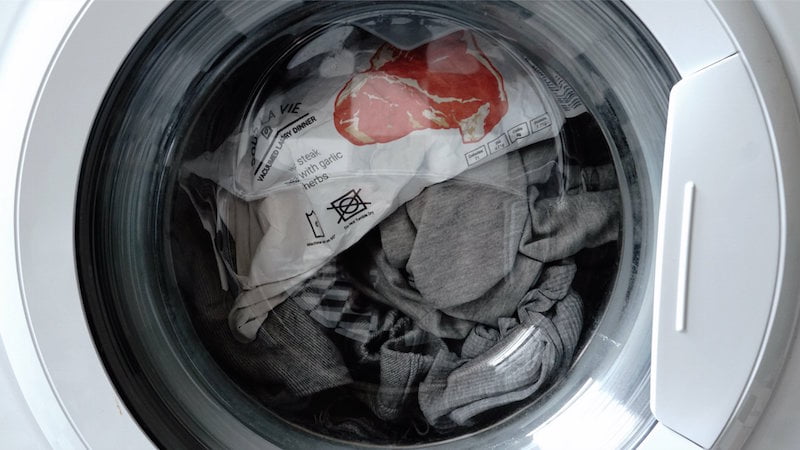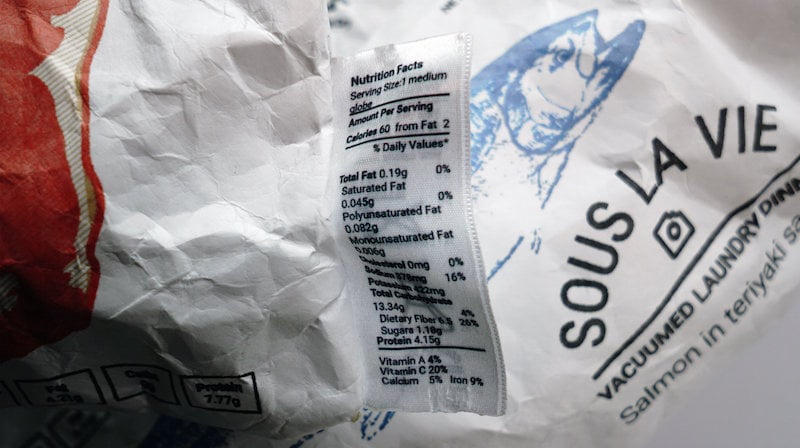No sous vide machine? No worries. Cook your next meal in the washing machine instead.
Cooking your meat, eggs and vegetables using a sous vide machine is so passé, right? Well apparently so, according to Israeli design student Iftach Gazit. This innovative thinker, who has undertaken an Industrial Design course at Bezalel Academy of Arts and Design, has created food bags you can literally throw into the washing machine alongside those dirty socks and undies.
For those who aren’t accustomed, sous vide is a precision cooking method, often seen in high-end restaurant kitchens. Your food is vacuum sealed in a plastic pouch and then placed in a temperature controlled water bath. The vacuum sealed food then cooks in the water over a long period of time. The idea is that meal cooks evenly whilst maintaining its moisture.
Before you question the logistics of the Sous La Vide bags, consider these key features. Gazit’s food bags are made using waterproof Tyvek paper, which keeps the food soap-free. They also have an inner sealed plastic bag to prevent any leaks. Instead of cooking meat at the prescribed 58 degrees for two hours, simply set your washing machine to ‘synthetics’ for a long duration wash. If you’re cooking vegetables, just set the washing machine to ‘cottons’ for a shorter cycle.
Think you’ll be eating a plain, unseasoned fillet of beef as your next meal? Think again. Gazit’s prototype bags feature fully packaged meals with complimentary sides (i.e. Salmon in Teriyaki sauce), with recommended washing temperatures and nutritional information laid out in the style of clothes labels.
Although Gazit’s innovation may just seem like comical dinner chat, there is a more serious underlying message. The Sous La Vide bags challenge interesting fast food/slow food and rich/poor dichotomies in the contemporary world. Gazit explains on his blog post that ‘the food we eat, and the way we eat it, reflects on our taste but much more on our economic abilities and culture’.
Gazit goes on, drawing our attention to the homeless epidemic across the globe. He explains the way in which 24/7 laundromats act as a safe haven for those living on the streets – ‘you can wash your clothes, they offer electricity, a bathroom and sometimes even WIFI’. To be able to cook a meal in a public space like a laundromat works to bring this ‘slow food, high end cooking method to lower class citizens’.
We have still have questions here in the office. Like whether it makes a difference if your washing machine is a front loader or top loader? Would an aggressive spin cycle cause the meat to turn to mush in your front loader? What if the bag leaks? Will your shirts reek of meat for an eternity?
To read more about it for yourself, check out Gazit’s personal blog here




